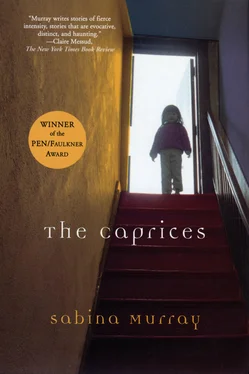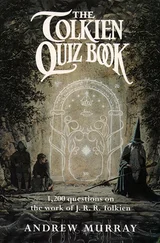Jim had not been a part of the mob. He’d watched with others from a close distance, but all he could see was a tangle of emaciated limbs. Above the groaning labor of the men, Jim heard the creak of metal. When the prisoners stepped back, Jim saw Matsuo impaled on a six-foot drill that had been used in the mine. The drill stuck through his chest. Two men arranged Matsuo on his knees, so that his legs formed a tripod with the point of the drill, which was protruding through his back. In this way, Matsuo could stay upright. The soldiers placed him at the entrance of the mine, to keep watch, to guard that which he’d valued over all their lives. Sometimes Jim would dream of Matsuo propped on his drill watching over him, keeping sentinel on his life.
After the war, Jim got a job at a garage in Newburyport, just over the causeway from Plum Island. The first time he saw Peggy, he was pumping gas. She pulled up, with her boyfriend, in a brand-new, banana-yellow Buick convertible. Her boyfriend stepped out, needing to use the bathroom. He’d been drinking. Jim could smell that. The boyfriend had glossy black hair streaked with gray, but was probably only twenty-five. He had a slight limp. Peggy got out too. She stood a safe distance away and lit a cigarette.
“Your boyfriend’s got a nice car,” said Jim.
“The car’s mine,” said Peggy.
Jim wiped his hands on a rag. “Then why aren’t you driving?”
Peggy laughed. She looked at Jim appraisingly. Jim started to get nervous.
“What time do you get off?” she asked.
The boyfriend had tipped Jim a whole dollar. He seemed like a decent guy. Jim spent the next hour trying to get his hands clean. When the convertible pulled up again, Peggy was driving. Jim hopped in. He took her for ice cream at the stand down the road. It was summer and gulls were wheeling overhead. Jim and Peggy were the oldest people seated at the counter. Kids in bare feet, their hair bleached with salt and sun, made up the other customers. Jim bought Peggy’s cone for her.
He said, “I’ve got a dollar burning a hole in my pocket.”
Peggy didn’t talk much. Jim wasn’t sure why he was there. He remembered that the girls in high school had liked him, but it didn’t give him a whole lot of confidence.
“Was your boyfriend in the war?” he asked.
“Normandy,” said Peggy.
“Is he a hero?” asked Jim.
Peggy was silent for a minute. She looked over at Jim, then away. “Twenty-four hours a day,” she said. And that made Jim laugh.
Peggy was a hero because she married Jim, who had no money, whose only talent was fixing things. Her family set him up in his own garage. Peggy was educated, beautiful, and tough. She had smoked herself to death and never asked for pity. She’d married Jim because he was the biggest man she’d ever seen. She’d married Jim because of the reach of his hands and because of his huge feet with the gnarled toes that spread out like the roots of a tree. And he always let her drive.
This house on the island was Peggy’s, had been in her family for a hundred years. She had supervised the replacement of shingles, barking out orders while Jim balanced at the top of a ladder. And Jim had built them a bed — longer by six inches than most — in the cramped bedroom, since Peggy didn’t think it would fit through the door. Jim liked the island. He liked his garage, but the whole business of the camps was hard to forget. Jim had to consciously put all the deaths, the hunger, and the fear into the past each morning. This was a difficult task. Sometimes he felt he was living his whole life at once, in one moment, regardless of what was done with and what was left to do. Peggy didn’t understand but was kind enough to act as if she did. She went to all Jim’s reunions. She danced with his buddies, whose wives were dead, and then she died and no one danced anymore. They were in their eighties. They were all heroes because they didn’t die and some were heroes because they did.
Peggy was dead six months when Clara had called Jim up. How Clara had found him, he was not sure. Must have been some veterans’ organization. The connection was poor. Clara’s voice sounded distant and blunted. Clara was unconcerned by the reach of years. She said, “I am so happy you are alive.”
And Jim had said, “Me too.”
Totoy was in San Francisco living in a hotel on Mission Street. He had come to the States for his veterans’ benefits, which were not enough, and now Clara was worried. She was living in an apartment in Parañaque, on the outskirts of Manila, with her kids and grandkids. Totoy sent her money every now and then, but her cousin (who lived in Daly City and was Totoy’s gambling partner) had written to her. Totoy’s tuberculosis was getting worse. They were scared he was going to die and that, because he was in the States and didn’t have enough money, they wouldn’t be able to send his body back to the Philippines. He would be cremated.
“He will be like an old cigarette,” said Clara. “What will God say to that?”
“I didn’t know he was in the U.S.” Jim had not seen Totoy since the day he’d been left at Camp O’Donnell. He’d thought of finding him after the war but hadn’t known his last name or the exact location of the house where Totoy had taken him. Also, Jim had not wanted to find out that he was dead. “I’ll go see him,” Jim said.
Jim flew to San Francisco and stayed in the Best Western in Japantown. He arranged to meet Totoy at a restaurant in Chinatown. Jim was momentarily concerned as he looked down at the sea of black-haired men that he and Totoy would miss each other, but Jim, even though he was eighty, was still over six feet tall. His hair was a vigorous gray and stood a good inch and a half high on his head. Everyone was noticing him. Totoy would too.
Jim sat on the booth side of a small table with his great hands folded on the tabletop and waited. It was noisy and Jim was left alone with his thoughts, because no one was speaking English. He saw a pair of old men standing in the doorway and realized, as he did every now and then, that he was old like them. Then one man smiled. Totoy had cow eyes, like his sister Clara, and a broad shovel-shaped nose, and those were much the same as they’d been sixty years ago. Jim stood up. He recognized the work of years, but also what had been left behind. There was a nervous twinge in his stomach and he forced himself to nod and smile, as if he were at ease. Totoy was gray-faced. His hair was thin on his head and he’d made an effort to comb it over the bare spots. There was still black in with the gray. He was wearing a short-sleeved sport shirt that was tight across his stomach. The muscles on his forearms were pronounced but his upper arms were thin, like Popeye arms. Totoy was very weak and leaned heavily on his cousin, who was similarly dressed; the two men wore identical black, thin-soled loafers.
“My sister called you,” said Totoy, smiling.
“Yes,” said Jim, his hands forced into his pockets.
“This man,” said Totoy to his cousin, “he buries my brother and now he buries me. But I, I brought him back from the dead.”
And Jim remembered that Totoy was his dear friend.
Jim stepped around from the table. He didn’t know if Filipino men hugged each other and he sure as hell knew that his guys didn’t, but he wanted to hug Totoy. He wanted to bring him back from the dead and take him on a cruise, like he used to go on with Peggy, where you drank cocktails and watched kicking showgirls at night. He wanted to get Totoy a new shirt and a set of golf clubs, to bring him back to the island where they would sit on the porch and drink whisky. Because he was unsure of himself, he nodded a few times and sat down.
The menu was in Chinese but Totoy and his cousin had it figured out. They ordered neon-colored drinks with rice-flour balls floating in them. They ordered two kinds of noodles, one crispy, the other soft. They ordered little chicks that came served on an oval plate, lacquered a glossy red with the heads still on. Totoy mumbled to his cousin over the food in Tagalog, then looked over at Jim, his face large and happy. “I didn’t think you would come to visit me. I think maybe you forget.”
Читать дальше












